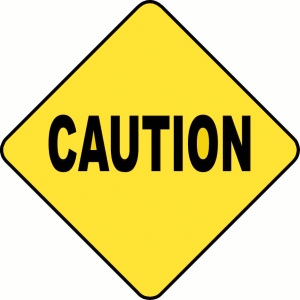New Year, Same Scams
 Holidays and the start of a new year are a prime time for scammers and hackers – and law firms are often the target.
Holidays and the start of a new year are a prime time for scammers and hackers – and law firms are often the target.
Over the past year, North Carolina lawyers have been hit by wire fraud scams and data hacks.
In response to this threat, Lawyers Mutual issued an eblast that warned lawyers as follows:
- Be on high alert for scams.
- Share fraud alerts with support staff.
- Every wire request should be verified.
- The best practice for verifying wire instructions is to have the seller sign the wiring instructions at the closing in the presence of the attorney.
- Do not accept changes to wiring instructions.
- Changes in wire instructions are a RED FLAG and you are likely being targeted for a scam.
Email and Wire Fraud
The single most common cause of wire fraud is hacked email. Lawyers are advised not to use a free email service (gmail, yahoo, aol, nc.rr.com, etc.) for business matters.
Other email tips:
- Regularly change your passwords.
- Use strong passwords.
- Do not accept changes to wiring instructions from a free email account.
- Confirm emailed wiring instructions with a telephone call to a well-documented telephone number already in your file.
- Do not send wires overseas. Once the money leaves the United States, it is likely gone forever.
If you believe you are the victim of a wire fraud, Lawyers Mutual advises that you call your bank and the recipient bank to freeze the funds.
Call Lawyers Mutual as well. They can help guide you through the crisis.
Real Property Closing Scams
Several North Carolina real property attorneys were hit by scammers in 2016. Hundreds of thousands of dollars were stolen, which is unlikely to be recovered. On the positive side, some attacks were foiled by vigilant attorneys and staff members.
Often the point of entry in these scams is an email account belonging to the lawyer, seller, realtor or some other party to the transaction.
From Lawyers Mutual’s website: “[T]he most common scenario was the Realtor’s account was being monitored by international criminal organizations. The foreign-based hackers would observe the account, likely for several weeks, and only actively intervene once an understanding of the business practices were obtained and a significant wire was to be produced. In the interim, the unsuspecting Realtor would continue to use the account unaware his or her client and the closing attorney were being set up to be robbed.”
Telephone Collection Scams
Another type of scam involves bogus debt collection via telephone. In a typical scenario, a caller purporting to be from a law firm telephones a victim to collect a debt. The victim is threatened with arrest if the debt isn’t paid by credit card over the phone.
There are ways to protect yourself. One is to alert your family and staff to the risk. Another is to let your clients know that you do not collect debts by telephone. Ask them to report any suspicious calls to you promptly.
If you think your firm has been the victim of such a scam, collect as much information as possible and call the State Bar Attorney Client Assistance Program at 919-828-4620 to report the incident.
You can also contact the NC Attorney General’s Consumer Protection Agency at 877-566-7226 or www.ncdoj.gov/Consumer.aspx.
Sources:
- Lawyers Mutual Risk Management Alerts http://www.lawyersmutualnc.com/risk-management-resources/malpractice-alerts
- Wire Instruction Fraud http://myemail.constantcontact.com/Wire-Instruction-Fraud-Continues-to-Plague-NC-Lawyers.html?soid=1118263556714&aid=wQQ2Rx1p6hU




